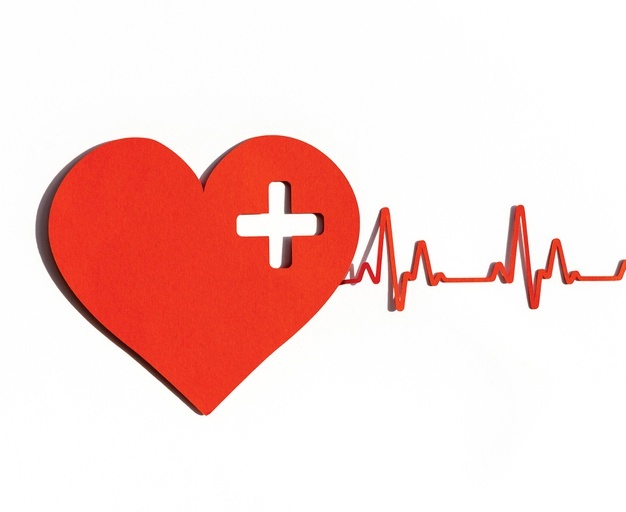The heart. How to improve your health?
Recommendations to improve heart health
Apart from heredity, sex and age, the main cardiovascular risk factors are modifiable and, therefore, are those on which prevention can act :
- Stop smoking
Among the risk factors, quitting smoking is the easiest to modify and the least expensive. Quitting smoking prevents thrombosis and heart attack, reduces the risk of recurrence and death by 50% when the habit is eliminated after the appearance of a heart problem.
It is never too late to quit smoking ; however, the sooner you stop, the sooner your body can begin to heal and repair the damage caused by tobacco use.
– Watch your weight
Being overweight is an important risk factor for cardiovascular diseases, but it is also responsible for other contributing factors such as hypertension, diabetes or cholesterol. Cardiovascular risk is high when there is excess fat on the waist and stomach.
– Adopt a healthy and balanced diet
Diet, too, is important to prevent the increase in cholesterol. Have a preference for vegetables, proteins, fruits and vegetables, fish and white meats.
It is recommended to use olive oil and natural seasonings such as garlic and unprocessed spices with a low salt intake. You can lower your triglycerides, another form of body fat, by eating a diet low in sugar and alcohol.
– Watch your weight
Being overweight is an important risk factor for cardiovascular diseases, but it is also responsible for other contributing factors such as hypertension, diabetes or cholesterol. Cardiovascular risk is high when there is excess fat on the waist and stomach.
Therefore, the ideal is to control your weight and if you have extra kilos, it is best to lose them with a healthy lifestyle, avoiding excessive diets that you cannot maintain in the long term.
– Fight against sedentary lifestyle
To take care of your heart, do some sport! It is not necessary to become a high-performance athlete, small daily efforts are already effective such as: going up the stairs instead of taking the elevator, walking with a firm step, if you take the bus or the subway, get off one station before your stop to walk 15 or 20 minutes each day. Use a step counter, 10,000 steps a day is recommended to stay healthy.
– Check your blood pressure regularly
Your doctor should also monitor your blood pressure and treat it if it increases. You can also check it using a tensiometer. In fact, high blood pressure, if left unchecked, will damage your heart and blood vessels over time . The vessels will harden and thicken (atherosclerosis).
– Treat your diabetes
Diabetes is known to damage blood vessels and promote atherosclerosis. Then the risk of heart attack and stroke is multiplied. Therefore, it is important to diagnose possible diabetes and have proper treatment with regular monitoring by your treating physician.
– Manage stress
Stress is harmful to health because it increases blood pressure, heart rate and weakens the immune system. It also influences the occurrence of cardiovascular diseases, particularly myocardial infarction .
So try to combat stress, this may involve the practice of some sport, meditation, relaxation, consultation with a psychologist if necessary, find the solution that best suits you.
– Control cholesterol and triglyceride levels
You should have your cholesterol checked at least regularly before the age of 40. The US National Heart, Lung, and Blood Institute “recommends that men ages 45 to 65 and women ages 55 to 65 have cholesterol tests every 1 to 2 years. People over the age of 65 should have their cholesterol checked once a year.
If you do not have risk factors, it is still advisable to know the values of your total cholesterol and triglycerides.
If, on the other hand, you have a risk factor, you should do a complete lipid evaluation, including the HDL (good cholesterol) dose and the LDL (bad cholesterol) calculation. Depending on the values, your doctor may prescribe a low-fat diet or take a medication.
– Practice good oral hygiene
Less well known, this advice is nevertheless very important. Having a healthy mouth limits the occurrence of cardiovascular diseases. Periodontitis or gum disease causes bleeding, favors the passage of bacteria into the blood and can affect the heart valves.
Therefore, get into the habit of brushing your teeth 3 times a day for 2 minutes, after each meal.
How to take care of heart health in children and adolescents?
It is estimated that 3% of children are overweight , and most of the time it is not diagnosed, and more than 3% of schoolchildren between the ages of 6 and 16 have high blood pressure (arterial hypertension), associated with being overweight.
The World Health Organization advises that children between the ages of 5 and 17 get at least 60 minutes of physical exercise a day. To do this, we offer you the following options:

- Extracurricular sports activities are a practical alternative depending on the logistical availability of each family.
- Physical activity 2 or 3 days a week as a family generates physical and mental well-being. Team games, field trips, walks, or treasure hunts can be done. This activity helps to eliminate the stress accumulated during the week of work and school obligations, and provides an excellent mental state of well-being. Exercise is healthy in itself, but it is even more so if it is done as a family.
- Learning a sport together as a family can generate great satisfaction as well as greater integration and confidence.
- Racket sports ( tennis, badminton, and squash), or swimming stimulate muscle development and neuromuscular coordination, as well as the cardiovascular level, since it involves neurological activity that facilitates blood pressure control. Likewise, aerobics or dance are involved in positive neuromuscular coordination for our cardiovascular system. These sports are some of those that generate the greatest benefits for the heart, scientifically proven. They involve an aerobic exercise with movements of large muscle groups, but without a demand that requires extreme effort and generate satisfaction from the point of view of emotional and social intelligence.
- When our day-to-day conditions do not allow it, just a few minutes of dancing at home can be very beneficial and fun.
Physical activity together with a balanced diet is the combination for success.
Importance of taking care of heart health

The heart is a muscle that pumps oxygen-filled blood to all parts of your body. This job keeps every cell, organ, and system within your body alive. To move blood to every part, your heart relies on your blood vessels. Together, the heart, blood, and blood vessels make up the cardiovascular system.
This system moves blood from the heart carrying oxygen and nutrients throughout your body and also collects waste products so your body can get rid of them.
Therefore, taking care of your heart is a must to reduce the risk of cardiovascular diseases and other ailments.
With an increasingly fast pace of life, we react faster to stress, eat worse, and greatly reduce physical effort and exercise, whether outdoors or in the gym.
In addition, with the passing of the years, the cardiac mechanism becomes more fragile and it is of the utmost importance, in order to maintain good health, to continue strengthening the heart through sports exercises.
Stress can also be bad for your heart. If you're stressed, your blood pressure and heart rate go up. Stress exposes your body to high levels of cortisol, and it can also change the way your blood clots. That is why it is important to exercise, enjoy activities and relax as much as possible.
Heart disease
Heart disease refers to several types of heart conditions. The most common type of heart disease is coronary artery disease, which affects blood flow to the heart. Decreased blood flow can cause a heart attack.
Data from the World Health Organization (WHO) say that " cardiovascular diseases are the leading cause of death in the world and, according to estimates, claim 17.9 million lives each year." Among these diseases that affect the heart we have:
– Heart failure
Heart failure occurs when the pumping action of the heart is no longer strong enough to maintain blood flow, especially during physical activity and stressful situations.
Also, the heart muscle may not relax properly to allow blood to return from the lungs to the heart.
The heart becomes too weak to pump blood throughout the body, which can cause fluid to build up in the lungs, making it increasingly difficult to breathe.
Heart failure can occur in two ways: suddenly (acute heart failure) or gradually (chronic heart failure).
– Coronary heart disease
This heart disease causes insufficient blood flow to the heart muscle. It is caused by the buildup of fatty deposits in the lining of the arteries. These deposits are made up of cholesterol, calcium, and other substances carried by the blood.
This accumulation of fat is called an atherosclerotic plaque. Plaque formation can block coronary arteries and make them stiff and irregular. This is known as hardening of the arteries or atherosclerosis.
– Heart attacks or heart attacks
A heart attack occurs when the blood supply to part of the heart is interrupted by a blockage in a coronary artery. Deprived of oxygen, the cells in this part of the heart muscle gradually die until the supply is restored.
The extent of the damage varies depending on the duration of the interruption: heart damage can be mild, severe or irreversible. In some cases, the heart attack can be fatal.
– Cerebrovascular accident (CVA):
A stroke occurs when blood flow to one part or another of the brain is blocked. This disruption causes damage to brain cells, which cannot be repaired or replaced.
The sequelae of a stroke depend on which part of the brain was damaged and the extent of that damage.
There are 2 types of strokes:
- Ischemic: when a blood clot blocks a blood vessel in the brain. This type represents 80% of all cases .
- Hemorrhagic: Occurs when there is a ruptured artery in the brain. The interruption of blood flow causes brain damage.
– Heart rhythm disturbances (arrhythmias)
Arrhythmia is an abnormality that affects the normal heart rate. With arrhythmia, the heart tends to beat too slowly (bradycardia), too fast (tachycardia), or irregularly. These abnormalities can affect the amount of blood the heart can pump.
Many forms of arrhythmia do not cause any health problems; however, they can cause a variety of bothersome symptoms, such as dizziness or chest pain. Other, more dangerous, forms of arrhythmias affect blood flow and therefore require medical treatment.
Management of emotions and stress in cardiovascular diseases
From the moment we are born, our organism somatizes the moods and each one of the parts of our body receives different stimuli according to the emotions that we go through.
In this way, when you are happy or scared, both your heart and blood pressure are altered; when you are worried the brain is altered; when there is anxiety, the digestive system is altered, and so on.
It is key for the human being to know how to control both sudden emotions and excessive moods so that they do not affect the cardiovascular system with an unexpected shock such as a shock or some shocking impression; or some joy or depression without stability or control. The first moods directly affect the heart, while the latter affect the arterial behavior of people.
On the other hand, stress is one of the states of mind that has been studied the most by specialists in recent years due to the fast-paced world in which society currently operates.
Various studies even highlight that excess stress is the cause of diseases such as hypertension, hyperglycemia, difficulties in the central nervous system, ulcers that can become cancerous tumors, and even heart attacks .
Consistently, the European Society of Cardiology points out that depression, work and family stress, lack of social support and anxiety contribute to the risk of contracting cardiovascular disease . Therefore, it is important that people effectively manage their emotions to maintain their good health.
In addition, doctors recommend eating healthy, exercising, organizing trips, outdoor time, and relaxation activities. By promoting the release of hormones such as dopamine, serotonin, and oxytocin, these actions reduce stress and increase feelings of happiness and serenity.
World Heart Day: an occasion for awareness

Like every year, September 29 is World Heart Day dedicated to prevention to keep the heart healthy, raise awareness about cardiovascular disease that causes almost half of all non-communicable diseases in the world, and promote the importance of healthy lifestyle. heart healthy lifestyle.
The initiative was created by the World Heart Federation ( World Heart Federation ) to join the "25by25" campaign launched in May 2012 by the World Health Organization (WHO).
The objective of this campaign is to urge all the countries of the world to implement the best strategies to reduce, by 2025, 25% of premature deaths caused by chronic (non-communicable) diseases such as those of the heart, blood vessels and diabetes. .
World Heart Day aims to promote actions to educate people that by controlling risk factors such as cigarette consumption, an unhealthy diet and physical inactivity, at least the majority of premature deaths from heart disease could be avoided and strokes.
According to the Pan American Health Organization (PAHO), heart disease continues to be the leading cause of mortality in the world.
They explain that "the number of deaths due to heart disease has increased since 2000 by more than 2 million people, reaching almost 9 million people in 2019. Heart disease currently represents 16% of all deaths due to all the causes".
Every September 29, World Heart Day is a global event during which individuals, families, communities, and governments around the world engage in activities to take charge of the health of their hearts and the health of others. Use your heart to improve your health.
